As we introduce our newest class of Chancellor’s Fellows (see box at right), let’s take a look back at the program’s first 15 years:
- 98 fellows — By definition, early-career faculty members, associate professors or having recently advanced to full professor. See a list of all fellows, 2000-01 to 2014-15.
- $2.45 million — Donor funds given to the Chancellor’s Fellows, $25,000 each, to help them advance their research projects and other scholarly work to a point where the fellows can hopefully win larger grants.
- $528 million — How much our faculty members have received in grants and awards, after being named Chancellor’s Fellows.
“What a wonderful return on investment,” said Shaun Keister, vice chancellor of Development and Alumni Relations. “We can’t thank our donors enough for supporting a program that pays off in such a big way for UC Davis.”
THE CLASS OF 2015-16
In announcing the new fellows, Chancellor Linda P.B. Katehi said: “I am impressed every year by the caliber of our early-career faculty, and so proud to have them as dedicated campus citizens, doing research that matters, and excelling as teachers.”
- Ethan B. Anderes, Department of Statistics
- Louise A. Berben, Department of Chemistry
- Arne Ekstrom, Department of Psychology
- Robert Faris, Department of Sociology
- Carlos Francisco Jackson, Department of Chicana/o Studies
- Noha Radwan, Department of Comparative Literature
- Carolyn Slupsky, departments of Nutrition, and Food Science and Technology
- Tobin White, School of Education
- Neal Williams, Department of Entomology and Nematology
- Qi Zhang, Department of Environmental Toxicology
- Karen Zito, Department of Neurobiology, Physiology and Behavior
Chancellor’s Fellows funding comes from the UC Davis Annual Fund and the UC Davis Special Giving Fund. See all of our Giving opportunities.
“The success of our Chancellor’s Fellows over the last 15 years demonstrates in a very tangible way the impact that philanthropic support is having on advancing the stellar research of our early-career faculty members,” Keister said. “We are pleased that we can connect donors to support these young faculty members who are doing tremendous work for not just our university, but for the betterment of our world."
Here are the newest fellows:
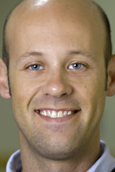
Ethan B. Anderes, Department of Statistics, Division of Mathematical and Physical Sciences, College of Letters and Science — He’s making an impact in statistics and physics with his research in random field theory. Random fields are used to describe the relationships among a number of variables, such as atomic particles. “Ethan’s research is characterized by both depth and breadth, and he is considered a foremost expert in methods and theory for random fields and spatial processes,” wrote Hans-Georg Müller, former statistics department chair. He described Anderes as an outstanding teacher of both the department’s introductory service classes and graduate-level courses. Anderes has two active grants from the National Science Foundation, one of which is an NSF Career Award for an early-career scholar with outstanding potential. Anderes joined UC Davis in 2008 as an assistant professor and advanced to associate professor in 2014. He was a postdoctoral fellow at UC Berkeley after graduating from the University of Chicago with a Ph.D. in statistics in 2005. Anderes earned bachelor's degrees in mathematics and philosophy from the University of Minnesota in 2000.
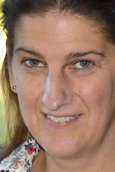
Louise A. Berben, Department of Chemistry, Division of Mathematical and Physical Sciences, College of Letters and Science — She is “breaking new ground” in the synthesis and characterization of new inorganic molecules, such as new catalysts for potential solar fuels, wrote department chair Susan Kauzlarich, describing Berben’s research achievements as “noteworthy and potentially game-changing,” and having “significant potential for exciting new discoveries." Berben participates in programs such as MURPPS (Mentorships for Undergraduate Research Participants in the Physical and Mathematical Science) and LEADS (Leadership Excellence Through Advanced Degrees), serving undergraduates from underrepresented student populations. She received an NSF Career Award in 2011 and an Alfred P. Sloan Research Fellowship in 2012, and has participated in several joint proposals on campus. Berben started at UC Davis as an assistant professor in 2009 and advanced to associate professor in 2014. She received a Ph.D. from UC Berkeley in 2005 and was a postdoctoral fellow at Caltech and MIT. Berben graduated from the University of New South Wales in 2000 with a bachelor’s degree in chemistry.
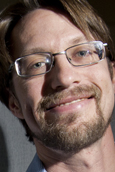
Arne Ekstrom, Department of Psychology, Division of Social Sciences, College of Letters and Science — How do we find our way around, or remember how to find a place we’ve visited before? Ekstrom’s research aims to answer those questions by mapping out the neuroscience of navigation and spatial memory. His work brings together both studies on people with amnesia, and experiments with rats learning to navigate a maze. In one part of his research, he collaborates with neurosurgeons and neurologists at UC Davis and in Texas to work with patients who have had electrodes implanted in their brains as part of treatment for severe epilepsy. He has been able to identify separate neural systems that code, integrate and retrieve memories about location of objects in time and space. Ekstrom earned bachelor’s and doctoral degrees from Brandeis University, and a master’s degree from the University of Arizona. He was a postdoctoral fellow at UCLA before joining the UC Davis Center for Neuroscience in 2009.
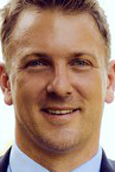
Robert Faris, Department of Sociology, Division of Social Sciences, College of Letters and Science — If you’re a parent of a teenager, you may have seen Faris on CNN last fall, on an Anderson Cooper 360 special report titled “Being 13: Inside the Secret World of Teens.” Faris collaborated on an earlier AC 360 report and has been featured in numerous other media reports for his path-setting research on bullying and peer pressure. Challenging the conventional wisdom that teen conflict, aggression and other social problems arise from individual attributes, Faris studies adolescent bullying, drug use and dating violence within social networks. “In doing so, Professor Faris has become a national go-to scholar for anyone who wants to learn about or is researching bullying,” wrote George R. Mangun, former dean of the Division of Social Sciences. “Part of the power of his work is that he also is a brilliant methodologist.” Other colleagues, in fields as diverse as public health and computer science, also used the word “brilliant” to describe Faris’ research combining sociological theories with surveys and other large databases. He joined the faculty as an assistant professor in July 2007 and moved up to the associate level in 2013. He received a master’s degree and Ph.D. from the University of North Carolina at Chapel Hill, both in sociology. He earned a bachelor’s degree from the University of Washington’s Jackson School of International Studies in 1995.
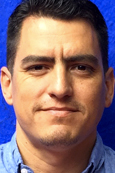
Carlos Francisco Jackson, Department of Chicana/o Studies, Division of Humanities, Arts and Cultural Studies, College of Letters and Science — A graduate of UC Davis, with a Bachelor of Science degree in community and regional development, and an M.F.A. in art studio (painting and printmaking), he is an expert on the history of the Chicana/o art movement, making contributions throughout his career to Chicana/o art scholarship and teaching, and to the community. “Professor Jackson is an artist, writer, community worker, teacher, and dedicated department and campus citizen,” wrote Susan B. Kaiser, interim dean. “He is one of those rare individuals who breaks the mold, as the saying goes, of what it means to be a university-based creative artist and scholar.” He’s the founding director of the community-based arts program known as TANA, or Taller Arte del Nuevo Amanecer, which opened in 2005 as a project of the Chicana/o studies department. He was an associate director in the Department of Art and a lecturer in Chicana/o studies before joining the faculty as an assistant professor in 2007. He advanced to associate level in 2012, and today serves as department chair.
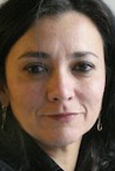
Noha Radwan, associate professor, Department of Comparative Literature, Division of Humanities, Arts and Cultural Studies, College of Letters and Science — “Considered to be one of the rising and important scholars in modern Arabic literature studies, Professor Radwan has developed a formidable reputation in her field,” wrote Susan Kaiser, interim dean. Radwan’s field takes in Middle Eastern literature in Arabic and Hebrew, and postcolonial literature in the Middle East, Africa and South Asia. She was in Cairo during the Arab Spring, and, in experiencing the uprising, recorded the involvement of the Arab literati as activists against repressive regimes. Kaiser described Radwan as “a scholar working in the forefront of an area of intense current importance.” She rounds out her dossier with a fullhearted commitment to teaching and to campus and professional service, Kaiser added. Radwan came to UC Davis in 2010. She earned her doctorate in Arabic literature from UC Berkeley and taught for several years at Columbia University. She is a fellow at the American Research Center in Egypt.
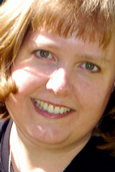
Carolyn Slupsky, departments of Nutrition and Food Science and Technology, College of Agricultural and Environmental Sciences — In research that spans food, nutrition and health, Slupsky has “demonstrated the remarkable ability to bridge disciplines and forge new understandings of the interactions of foods, gut microbiota and mammalian host metabolism,” Dean Helene Dillard wrote. In addition, Slupsky is using nuclear magnetic resonance technology to investigate citrus greening disease, a devastating bacterial infection in citrus trees now threatening the entire citrus industry. Colleagues noted that she has a keen ability to recognize which research discoveries are especially promising for translating into practical applications in health, agriculture and elsewhere. Slupsky joined the UC Davis faculty as an assistant professor in 2009, gained tenure as an associate professor in 2013 and was promoted to full professor in 2015. She received her doctoral degree in biochemistry from the University of Alberta in 1995.
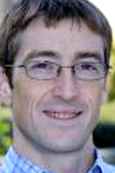
Tobin White, School of Education — He’s a former high school teacher whose expertise revolves around the use of technology — including phones and tablet computers — in teaching and learning mathematics. “Dr. White’s scholarly work and professional engagement with educators seek to generate ways of using technology that will promote collaboration and thereby help ‘level the playing field’ for all students,” Dean Harold Levine wrote. “He has intentionally developed his tools for classrooms with diverse student populations and has tested them in those environments.” Lee Martin, associate professor in the School of Education, described White as “an excellent teacher and, even more so, a skilled and generous mentor. I have experienced this firsthand as he has helped me with my teaching, invited me to collaborate on projects … and mentored me through many other professional development tasks.” White has been with the school for nine years, having earned a doctoral degree in mathematics education from Stanford University in 2005. He earned a master’s degree from Virginia Tech and a bachelor’s degrees from Bates College.
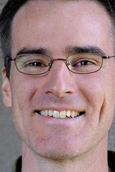
Neal Williams, Department of Entomology and Nematology, College of Agricultural and Environmental Sciences — His research focuses on the ecology and evolution of bees and other pollinator insects and their interactions with flowering plants, especially in light of changing landscapes. His work is particularly timely given concern over the global decline in bees and other pollinators. Colleagues have praised him for being a gifted scientist doing groundbreaking fundamental research and an effective communicator of research findings to California agriculture, especially the almond industry. Williams joined the UC Davis faculty in 2009 and received tenure as an associate professor in 2013. He has a Ph.D. in evolution and ecology from State University of New York, Stony Brook.
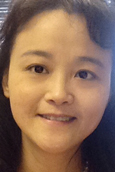
Qi Zhang, Department of Environmental Toxicology, College of Agricultural and Environmental Sciences — Innovative, collaborative and a rising star in the field of atmospheric chemistry, Zhang’s landmark approaches to analyzing aerosol mass spectrometer data have helped establish new paradigms for understanding aerosol composition. “Her work is critical for understanding and modeling effects of aerosols on air quality, climate and human health,” Dean Helene Dillard wrote. After completing her Ph.D. in atmospheric chemistry at UC Davis and a postdoctoral fellowship at the University of Colorado, she joined the faculty at SUNY Albany in 2005. She returned to UC Davis as a faculty member in 2009 and was promoted to associate professor in 2012. In her short academic career to date, she has published more than 90 peer-reviewed papers that have been cited more than 7,000 times, a testament to the value of her papers and to the atmospheric science community and beyond, noted Anthony Wexler, director of the UC Davis Air Quality Research Center.
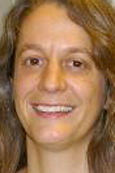
Karen Zito, Department of Neurobiology, Physiology and Behavior, College of Biological Sciences — Described by reviewers as an “imaginative and energetic” scientist and a leader in her field, Zito studies how the connections within the brain are formed during development, molded by sensory experience and altered by disease. Her work focuses on dendritic spines, tiny but dynamic protrusions that extend from nerve cells, forming connections with other nerves. Her research could ultimately have implications for understanding neurological disorders, both developmental and those caused by disease. Zito teaches in the department’s core undergraduate curriculum and also offers specialty graduate and undergraduate courses. She has mentored several underrepresented undergraduates in her laboratory through the Biology Undergraduate Scholars Program. Zito earned her bachelor’s degree from Indiana University, Bloomington; Ph.D. from UC Berkeley; and was a postdoctoral fellow at the Cold Spring Harbor Laboratory before joining the UC Davis Center for Neuroscience in 2006.
Follow Dateline UC Davis on Twitter.
Media Resources
Dave Jones, Dateline, 530-752-6556, dljones@ucdavis.edu